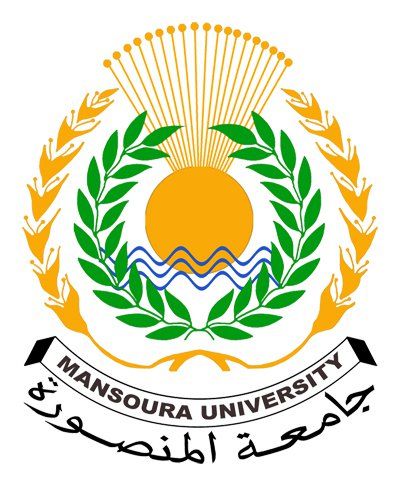预约演示
更新于:2026-01-31
Icomucret
更新于:2026-01-31
概要
基本信息
结构/序列
分子式C20H32O3 |
InChIKeyJSFATNQSLKRBCI-VAEKSGALSA-N |
CAS号54845-95-3 |
关联
100 项与 Icomucret 相关的临床结果
登录后查看更多信息
100 项与 Icomucret 相关的转化医学
登录后查看更多信息
100 项与 Icomucret 相关的专利(医药)
登录后查看更多信息
1,527
项与 Icomucret 相关的文献(医药)2025-12-01·JOURNAL OF ALLERGY AND CLINICAL IMMUNOLOGY
IgE-activated human lung mast cells preferentially release prostaglandin D2, thromboxane A2, and cysteinyl-leukotrienes
Article
作者: Dahlén, Sven-Erik ; Säfholm, Jesper ; Vali, Kasra ; Nilsson, Gunnar P ; Kolmert, Johan ; Sachs, Erik ; Rönnberg, Elin ; Johnsson, Anna-Karin ; Al-Ameri, Mamdoh ; Wheelock, Craig E
BACKGROUND:
The capacity of human lung mast cells (HLMC) to biosynthesize lipid mediators other than prostaglandin D2 (PGD2) and the cysteinyl leukotrienes is not established. We therefore profiled lipid mediator metabolites in IgE-activated HLMC.
METHODS:
A liquid chromatography-tandem mass spectrometry platform including 107 metabolites of main endogenous polyunsaturated fatty acids was applied to supernatants of HLMC and for comparison on material from in vitro-developed cord blood mast cells. Involved pathways were defined by the use of specific pharmacologic inhibitors and transcriptomic analysis of the expression of relevant enzymes.
RESULTS:
IgE activation of HLMC profoundly increased the release of leukotriene C4 (>500 times), PGD2 (>200 times), and thromboxane B2 (>100 times). In contrast, only minimal production of prostaglandin E2, leukotriene B4, or lipoxin A4 was detected. The majority of the quantified compounds (n = 50) were metabolites of arachidonic acid, whereas levels of metabolites from other polyunsaturated fatty acids were low. Despite the COX-2 transcript being the most abundant species, all prostanoids, as well as lipoxin A4 and 15-HETE, were solely biosynthesized in reactions catalyzed by COX-1. There was no apparent shunting between the main enzymatic pathways when COX-1 or 5-LOX were inhibited. Similar results were obtained in the cord blood mast cell model.
CONCLUSIONS:
There is a high degree of specialization in HLMC with a strong and specific increase in cysteinyl leukotrienes and PGD2 but also the bronchoconstrictor thromboxane A2 after IgE-dependent activation.
2025-11-01·PHYTOMEDICINE
Mulberry (Morus alba l.) leaf improves arachidonic acid metabolism disorder in chronic obstructive pulmonary disease
Article
作者: Liu, Qi-Ming ; Chen, Bi ; Huang, Xian-Jie ; Tang, Dao-Quan ; Cui, Xu-Teng ; Zhao, Yan-Lin ; Wei, Juan ; Du, Yan ; Huang, Zhong
BACKGROUND:
Chronic obstructive pulmonary disease (COPD) cannot be fully assessed in severity using current diagnostic methods and spirometry. Previous studies indicate that arachidonic acid (ARA) metabolic dysregulation is closely linked to inflammation and oxidative stress, yet its association with COPD remains unclear.
PURPOSE:
This study aims to investigate the relationship between ARA metabolism and COPD, as well as the intervention mechanism of mulberry (Morus alba l.) leaves, using functional metabolomics.
METHODS:
We employed ultra-performance liquid chromatography-tandem mass spectrometry to measure serum ARA and its 11 metabolite concentrations in clinical samples (91 healthy subjects and 191 COPD patients) and in COPD rats. Metabolomic techniques were utilized to screen differential metabolites. Additionally, malondialdehyde (MDA), superoxide dismutase (SOD), catalase (CAT), and glutathione peroxidase (GSH-Px) levels in serum from both COPD patients and rats were quantified using assay kits. Hematoxylin-eosin staining and ELISA were applied to observe pulmonary morphology and serum levels of interleukin (IL)-10, IL-6, IL-1β, and tumor necrosis factor (TNF)-α in rats, respectively. Real-time polymerase chain reaction was used to measure mRNA expression of cyclooxygenase (COX), lipoxygenase (LOX), and soluble epoxide hydrolase in rat lung.
RESULTS:
Five differential metabolites, (±)12-hydroxyeicosa-tetraenoic acid (HETE), 15(S)-HETE, (±)11-HETE, prostaglandin E2 (PGE2), and thromboxane B2 (TXB2), were identified in COPD patients and rats. Among these, (±)12-HETE, 15(S)-HETE, and (±)11-HETE showed significant positive correlations with COPD assessment test scores and negative correlations with eosinophil percentages, with high diagnostic sensitivities and specificities. When combined with aminophylline (APL), mulberry leaf water extract (MLWE) intervention significantly improved pulmonary function parameters in COPD rats, outperforming APL or high-dose MLWE alone. MLWE also reduced interstitial inflammatory cell infiltration, lowered mean linear intercept, downregulated COX-2 and 5/12/15-LOX mRNA expression in lung tissue, decreased serum levels of IL-6, IL-1β, and TNF-α, and elevated IL-10. Furthermore, MLWE enhanced SOD, CAT, and GSH-Px activities while reducing MDA levels, indicating mitigation of oxidative stress.
CONCLUSIONS:
ARA metabolic dysregulation contributes to COPD pathogenesis, and (±)12-HETE, 15(S)-HETE, and (±)11-HETE may serve as potential biomarkers for COPD. MLWE exert therapeutic effects by modulating ARA metabolism, ameliorating oxidative stress, and suppressing inflammatory responses, offering a novel strategy for COPD prevention and treatment.
2025-10-01·PROSTAGLANDINS LEUKOTRIENES AND ESSENTIAL FATTY ACIDS
Early-life feeding of arachidonic acid and docosahexaenoic acid beneficially modulated ileum and splenocyte oxylipins to support oral tolerance development in allergy-prone BALB/c mice
Article
作者: Patel, Dhruvesh ; Mazurak, Vera ; Richard, Caroline ; Wang, Ren ; Field, Catherine ; Serna, Magaly Rivas ; Goruk, Susan
BACKGROUND:
Early-life feeding of arachidonic acid (ARA)+docosahexaenoic acid (DHA) has been shown to promote immune changes associated with oral tolerance (OT). Oxylipins have been demonstrated to be modulated by diet and alter immune function.
OBJECTIVE:
To determine whether early-life feeding of ARA+DHA modulated the ileum and ovalbumin (OVA)-challenged splenocyte oxylipin profile in a way that is beneficial for OT development.
METHOD:
Allergy-prone BALB/c dams were fed a control (0 %ARA, 0 %DHA) or ARA+DHA (1 %ARA, 1 %DHA) diet during suckling. At 3wks, half of the pups were killed to analyze ileum morphology and oxylipin profile. The remaining pups continued consuming the maternal diets. From day 21-25, pups received daily oral gavage of sucrose or OVA, followed by intraperitoneal OVA injections on day 35 and 41. At 6wks, pups were killed to analyze plasma OVA-specific-IgE and -IgG, ileum morphology, splenocyte phospholipid fatty acid composition and ex vivo splenocyte oxylipin production after OVA stimulation.
RESULTS:
ARA+DHA supplementation resulted in a 5-fold reduction in plasma OVA-IgE concentration, confirming OT development. At 3wks, ARA+DHA-fed mice had higher ileum levels of 8-HETE, 14,15-DiHETrE, 4-HDHA, 17-HDHA and 19,20-EpDPE and lower levels of 13-HODE and 20-HETE, which suggests better ileum maturation, lower inflammation and enhanced tolerogenic immune regulation to support OT. The longer villi, shorter crypts and higher villus/crypt ratio confirmed the superior ileum maturation. At 6wks, ARA+DHA supplementation increased oxylipin substrates (ARA, DHA, linoleic acid and eicosapentaenoic acid) in splenocyte phospholipids. After OVA stimulation, splenocytes from ARA+DHA-fed mice produced more PGD2, 5-HETE, 15-HETE and 20-HDHA and less TXB2 and 12-HETE, which suggests inhibited Th2 and allergic responses and enhanced tolerogenic immune modulation to support OT.
CONCLUSION:
Early-life feeding of ARA+DHA beneficially modulated the oxylipin profile in the ileum and OVA-challenged splenocytes to support OT development.
3
项与 Icomucret 相关的新闻(医药)2025-12-04
本期内容聚焦于2025年11月26日至12月3日的特应性皮炎研究动态,精心筛选并汇总了多项具有代表性的前沿研究进展。为了方便读者更好地把握研究方向,我们将这些文献进行分类整理,力求呈现一个系统、全面的研究概览。
本文汇总了特应性皮炎领域的最新高影响力研究,涵盖创新药物研发、治疗策略、免疫机制及辅助治疗进展。
发表在《Lancet》上的两项研究报道了靶向OX40的单克隆抗体rocatinlimab在中重度特应性皮炎中的显著疗效和良好安全性,展示了这一新型免疫调节疗法的巨大潜力。另一篇《Lancet》文章则通过全球多中心III期临床试验,系统验证了rocatinlimab的临床优势,为重症患者带来新的希望。
《Acta Pharmaceutica Sinica B》发表的研究创新性地结合了马齿苋提取物纳米囊泡和透明质酸基微针递送技术,通过调控免疫细胞极化及炎症信号通路,有效缓解特应性皮炎,开辟了植物外泌体在皮肤疾病治疗的新路径。
《Drugs》杂志综述了局部泛JAK抑制剂Delgocitinib在慢性手部湿疹及特应性皮炎中的应用进展,强调其多靶点抗炎机制和良好安全性,成为类固醇替代治疗的重要选择。
《Allergy》刊登的综述聚焦蛋白质糖基化在2型炎症及过敏性疾病中的调控作用,深入解析了其在特应性皮炎等疾病发病机制中的关键影响,为未来精准免疫治疗提供了新思路。
整体研究为特应性皮炎的精准治疗和综合管理提供了重要理论基础和临床指导。药物类:
1. Lancet(IF:88.5):靶向OX40:rocatinlimab——特应性皮炎的新型治疗方法;
2. Lancet(IF:88.5):rocatinlimab治疗中重度特应性皮炎的有效性与安全性:ROCKET-IGNITE与ROCKET-HORIZON两项全球、双盲、安慰剂对照、随机3期临床试验;
3. Acta Pharm Sin B(IF:14.6):反义分子:特应性皮炎有前景的新疗法;
4. Drugs(IF:14.4):泛JAK抑制剂在慢性手部湿疹及其他皮肤病中的应用:外用delgocitinib的最新综述;
5. Br J Dermatol(IF:9.6):ivarmcitinib软膏治疗成人轻中度特应性皮炎:一项随机、双盲、安慰剂对照、2/3期临床试验的第3期部分研究;
6. Pediatrics(IF:6.4):Dupilumab相关的儿童特应性皮炎患者眼表疾病:BioDay注册研究结果;
7. Pediatrics(IF:6.4):Dupilumab对特应性皮炎精神及睡眠障碍风险的降低作用:一项基于人群的队列研究;
8. Pediatrics(IF:6.4):Nemolizumab联合外用治疗中重度特应性皮炎青少年及成人(ARCADIA 1和ARCADIA 2):两项重复、双盲、随机对照3期试验结果;治疗类
1. Acta Pharm Sin B(IF:14.6):微针辅助马齿苋来源纳米囊泡通过调节巨噬细胞M1/M2极化及抑制NF-κB和STING信号通路改善特应性皮炎;
2. Am J Clin Dermatol(IF:8.8):阿布洛昔替尼、巴瑞替尼和乌帕替尼治疗特应性皮炎的真实世界有效性与安全性:系统评价与Meta分析;
3. Pediatrics(IF:6.4):接受度普利尤单抗治疗的儿科特应性皮炎患者较传统免疫调节治疗患者特应性进展风险降低:基于人群的队列研究;
4. Pediatrics(IF:6.4):乌帕替尼治疗难治性儿科特应性皮炎:度普利尤单抗无应答者中的真实世界有效性与安全性研究;
5. Drug Deliv Transl Res(IF:5.5):依克多因作为多功能分子:生物技术生产及药物应用;
6. Pharmaceutics(IF:5.5):细胞介导药物递送在皮肤病治疗中的进展:机制与现有应用;
7. Mar Drugs(IF:5.4):紫菜属Neopyropia yezoensis的治疗潜力:最新综述;
8. Gels(IF:5.3):用于特应性皮炎有效治疗的乳胶剂研究进展:儿童临床调查;
9. Gels(IF:5.3):褪黑素在皮肤病及皮肤科和局部治疗新兴应用中的作用;
10. Int J Mol Sci(IF:4.9):抗细胞因子药物在犬特应性皮炎治疗中的应用;手术类:
近期在该领域未有新的文章,敬请期待诊断类:
近期在该领域未有新的文章,敬请期待其他类:
1.Allergy(IF:12.0):蛋白糖基化:过敏性疾病的新兴调控因子;
2.J Am Acad Dermatol(IF:11.8):子宫内膜异位症与特应性皮炎的关联:基于NHANES与遗传因果推断的证据;
3.Br J Dermatol(IF:9.6):特应性皮炎与多种共病的关联:基于人群队列的疾病严重度依赖性及非特应性多重共病模式分析;
4.Allergol Int(IF:6.7):九种过敏性疾病的年龄分层共病转变及相互关联图谱;
5.Pediatrics(IF:6.4):高危特应性皮炎儿童食物过敏诊断的社会人口学影响因素;
6.Pediatrics(IF:6.4):全球、区域与国家层面儿童特应性皮炎负担:趋势与地理不平等分析;
7.Pediatrics(IF:6.4):中重度特应性皮炎对儿科及青少年患者的自报影响:一项真实世界横断面调查结果;
8.Front Immunol(IF:5.9):全球免疫相关皮肤病负担,1991-2021年:全球疾病负担研究的见解与预测;
9.Inflamm Res(IF:5.4):IFNγ、IL-4和IL-13对特应性皮炎患者单核细胞及巨噬细胞中5-脂加氧酶与白三烯C4合酶表达的差异调控;
10.Life Sci(IF:5.1):WTAP-m6A-ALOX15轴介导树突状细胞-角质细胞相互作用,参与脂质代谢紊乱驱动特应性皮炎;
11.Nutrients(IF:5.0):维生素D在特应性皮炎中的作用及对皮肤微生物组的影响;药物类:1. 靶向OX40:rocatinlimab治疗特应性皮炎的新型疗法
期刊名称:Lancet影响因子:88.5JCR分区:Q1作者:Keneshka Atash(一作),Keneshka Atash(通讯)单位:National Expertise Center for Atopic Dermatitis, Department of Dermatology and Allergology, University Medical Center Utrecht, Utrecht 3584 CX, NetherlandsDOI:https://doi.org/10.1016/S0140-6736(25)02152-X摘要:本文探讨了rocatinlimab作为一种新型靶向OX40的单克隆抗体,在治疗特应性皮炎中的潜力。OX40是一种在免疫反应调节中关键的共刺激分子,针对OX40的抑制有助于调节过度活跃的免疫反应,从而缓解特应性皮炎患者的炎症症状。初步研究显示rocatinlimab在安全性和疗效方面均表现出良好前景,可能为特应性皮炎患者提供一种新的治疗选择。总结:该文介绍了rocatinlimab,这是一种靶向OX40的创新疗法,旨在通过调节免疫系统过度活跃来治疗特应性皮炎。研究表明,该药物在改善患者炎症症状及安全性方面具有积极效果,展示了其作为特应性皮炎新治疗手段的潜力。2. 罗卡替尼单抗治疗中重度特应性皮炎的疗效与安全性:ROCKET-IGNITE和ROCKET-HORIZON两项全球多中心III期随机对照试验
期刊名称:Lancet影响因子:88.5JCR分区:Q1作者:Emma Guttman-Yassky(一作),Emma Guttman-Yassky(通讯)单位:Department of Dermatology, Icahn School of Medicine at Mount Sinai, New York, NY, USADOI:https://doi.org/10.1016/S0140-6736(25)01865-3摘要:[背景] 罗卡替尼单抗是一种针对活化T细胞表面OX40受体的T细胞调节治疗,旨在减少致病性T细胞数量,治疗中重度特应性皮炎(AD)。[方法] ROCKET-IGNITE与ROCKET-HORIZON为两项为期24周的随机、双盲、安慰剂对照III期临床试验,分别在19个国家展开,纳入18岁及以上确诊中重度AD患者。IGNITE中患者按3:2:2比例随机分配至300mg罗卡替尼、150mg罗卡替尼或安慰剂组;HORIZON中按3:1分配至300mg罗卡替尼或安慰剂组。治疗于第0、2、4周及之后每4周一次,至第20周。主要终点为24周时达到EASI-75(湿疹面积和严重度指数改善≥75%)及vIGA-AD评分0或1(清晰或接近清晰皮肤)。[结果] IGNITE纳入767例患者,HORIZON纳入726例。两项试验均达成主要终点,罗卡替尼组EASI-75反应率显著高于安慰剂,且vIGA-AD评分改善显著。常见不良事件包括发热、寒战及口腔溃疡,主要为注射相关反应,多为轻中度,无治疗相关死亡。[结论] 罗卡替尼单抗在治疗成人中重度AD中显示出显著且临床意义的疗效,且安全性良好。总结:本研究通过两项全球多中心III期临床试验证实,靶向OX40受体的罗卡替尼单抗能有效改善中重度特应性皮炎患者的病情,显著提高EASI-75与皮肤清晰度评分,且耐受性良好,常见不良反应主要为轻中度注射相关反应,提示其为该疾病的潜在有效治疗选择。3. 反义分子:特应性皮炎的一种有前景的新疗法
期刊名称:Acta Pharm Sin B影响因子:14.6JCR分区:Q1作者:Jiayi Xue(一作),Jiayi Xue(通讯)单位:上海交通大学医学院新华医院皮肤科DOI:https://doi.org/10.1016/j.apsb.2025.09.008摘要:特应性皮炎(AD)是一种常见的慢性炎症性皮肤病,全球患病率高达20%,尤其多见于儿童。目前的治疗多针对症状,难以根治,亟需创新疗法。以反义分子为代表的RNA靶向治疗已在脊髓性肌萎缩症和家族性乳糜微粒血症等疾病中取得临床成功,能够实现对信使RNA和调控非编码RNA的精准调控。皮肤的可及性使其成为反义调控的理想靶点。多项研究针对AD关键致病因子使用反义技术,初步结果令人鼓舞,部分已进入临床早期试验阶段。这种治疗模式标志着AD管理的范式转变,与RNA治疗革新现代医学的趋势相契合。本文综述了反义技术在AD中的作用机制及其临床转化的挑战。总结:特应性皮炎是一种常见且难以治愈的慢性皮肤炎症病,传统治疗主要缓解症状。反义分子作为RNA靶向治疗新兴手段,通过精准调控相关mRNA和非编码RNA,展现出治疗AD的新潜力。由于皮肤易于接触和操作,反义疗法在AD中的应用前景广阔,已有多个研究和临床早期试验支持其有效性。该技术代表了AD治疗的重大创新,但仍需克服转化过程中的多项挑战,未来有望推动AD治疗进入精准医疗新时代。4. 泛JAK抑制剂在慢性手部湿疹及其他皮肤疾病中的应用进展:局部用药Delgocitinib的最新综述
期刊名称:Drugs影响因子:14.4JCR分区:Q1作者:Davide Termini(一作),Gianluca Avallone(通讯)单位:Dermatology Unit, Fondazione IRCCS Ca' Granda Ospedale Maggiore Policlinico, Milan, ItalyDOI:https://doi.org/10.1007/s40265-025-02262-1摘要:慢性手部湿疹是一种高发的炎症性皮肤病,严重影响患者生活质量和社交功能。传统治疗如局部皮质类固醇和钙调神经磷酸酶抑制剂常因疗效不足及长期安全性问题受限。Delgocitinib 2%乳膏是欧洲首个获批用于中重度慢性手部湿疹的局部泛Janus激酶抑制剂,通过同时靶向多条致病细胞因子通路,实现了对疾病的有效控制且系统吸收极低,提供了甾体类药物的替代方案。三项关键III期临床试验(DELTA 1、2、3)证实其能显著减轻病情、瘙痒和疼痛,且长期用药安全良好。近期研究拓展了Delgocitinib在青少年及亚洲人群的应用,并评估了乳膏与软膏剂型在不同部位的适用性。除慢性手部湿疹,Delgocitinib在特应性皮炎中的疗效亦被证实,且在白癜风、扁平苔藓及毛发疾病等免疫介导的皮肤病中显示出潜在应用前景。本文综述了泛JAK抑制的生物学基础、Delgocitinib在慢性手部湿疹和特应性皮炎中的最新临床结果及其未来在免疫相关皮肤病中的发展方向。总结:本综述介绍了Delgocitinib作为首个欧洲批准的局部泛JAK抑制剂,在治疗中重度慢性手部湿疹中带来的重要突破。其多靶点机制有效缓解炎症和症状,且长期安全性良好,成为甾体类药物的有力替代。最新临床数据还支持其在不同年龄和种族群体中的应用,剂型选择可根据病变部位调整。Delgocitinib在特应性皮炎及其他免疫介导皮肤病中的潜在疗效,显示了其广泛的治疗前景,为未来相关疾病的管理提供了新思路。5. Ivarmacitinib软膏治疗轻中度成人特应性皮炎的III期临床试验:一项随机、双盲、安慰剂对照的II/III期无缝适应性试验
期刊名称:Br J Dermatol影响因子:9.6JCR分区:Q1作者:Duoqin Wang(一作),Jinhua Xu(通讯)单位:复旦大学华山医院DOI:https://doi.org/10.1093/bjd/ljaf482摘要:【背景】轻中度特应性皮炎(AD)的有效局部治疗需快速缓解瘙痒、持续抗炎且局部毒性低。现有激素和钙调神经磷酸酶抑制剂长期使用存在不良反应,急需安全的类固醇替代品。【目的】评估ivarmacitinib软膏(一种选择性Janus激酶1抑制剂)每日两次在轻中度AD成人中的疗效和安全性。【方法】在中国27个中心进行的随机、双盲、车辆对照II/III期无缝适应性试验中,18-75岁轻中度AD患者随机分配接受0.5%、1% ivarmacitinib软膏或车辆,治疗8周。车辆组患者治疗后期接受活性药物至52周。主要终点为8周IGA评分改善和EASI-75响应。【结果】8周时,ivarmacitinib组IGA响应率显著高于车辆组(0.5%组21.3% vs 10.6%,1%组26.2% vs 10.6%),EASI-75响应率亦显著提高。瘙痒缓解48小时内出现并持续至52周,皮损及生活质量改善明显。副作用多为轻度,感染事件少,无局部皮肤萎缩、毛细血管扩张或刺激反应。长期安全性良好,无新增安全信号。【结论】每日两次使用0.5%或1% ivarmacitinib软膏能快速、持久且耐受良好地改善轻中度AD成人的症状和瘙痒,具有成为安全类固醇替代局部治疗的潜力。
总结:本研究显示,ivarmacitinib软膏作为一种选择性JAK1抑制剂,每日两次用于轻中度特应性皮炎成人,能快速缓解瘙痒并显著改善病情,且安全性良好,无常见激素类药物相关的局部副作用。其疗效持续至一年,支持其作为一种安全且有效的类固醇替代局部药物的潜力。6. Dupilumab相关的儿科特应性皮炎患者眼表疾病:来自BioDay登记的结果
期刊名称:Pediatrics影响因子:6.4JCR分区:Q1作者:Kelly Pounds(一作),Luke A Wall(通讯)单位:New Orleans, LA.DOI:https://doi.org/10.1542/peds.2025-074246HD摘要:本研究来自BioDay登记,评估了使用Dupilumab治疗的儿科特应性皮炎患者中眼表疾病的发生情况。结果显示,Dupilumab治疗虽然有效改善了皮肤症状,但部分患者出现了眼部副作用,包括结膜炎等眼表疾病。研究强调了对这一群体眼部健康的监测和管理重要性,以优化治疗效果并减少不良反应。总结:本文通过BioDay登记数据,揭示了在使用Dupilumab治疗儿科特应性皮炎患者中,眼表疾病是一个值得关注的副作用。尽管Dupilumab有效控制皮肤炎症,但眼部不良反应的发生提示临床医生需要加强眼部监测,及时干预,保障患者的整体用药安全和生活质量。该研究为儿科临床实践提供了重要的安全性参考。7. Dupilumab对特应性皮炎患者精神和睡眠障碍风险降低的影响:基于人群的队列研究
期刊名称:Pediatrics影响因子:6.4JCR分区:Q1作者:Nikita Batra(一作),Jeffrey Chambliss(通讯)单位:Dallas, TXDOI:https://doi.org/10.1542/peds.2025-074246HC摘要:本研究基于人群队列,评估了Dupilumab治疗对特应性皮炎患者精神疾病及睡眠障碍风险的影响。结果显示,Dupilumab不仅有效缓解皮肤炎症,还显著降低了患者发生精神障碍和睡眠障碍的风险,提示其在改善特应性皮炎相关心理健康问题方面具有潜在益处。
总结:该基于人群的队列研究揭示了Dupilumab治疗特应性皮炎患者时,在降低精神疾病和睡眠障碍风险方面的积极作用。此发现支持Dupilumab不仅作为皮肤炎症的治疗药物,也有助于改善患者的心理健康和睡眠质量,具有重要的临床意义。8. Nemolizumab联合局部治疗用于青少年及成人中度至重度特应性皮炎(ARCADIA 1和ARCADIA 2):两项重复、双盲、随机对照三期试验结果
期刊名称:Pediatrics影响因子:6.4JCR分区:Q1作者:Aadesh Chordia(一作),J Andrew Bird(通讯)单位:Dallas, TX.DOI:https://doi.org/10.1542/peds.2025-074246HG摘要:本研究报道了两项三期、双盲、随机对照试验(ARCADIA 1和ARCADIA 2),评估Nemolizumab联合局部治疗在青少年及成人中度至重度特应性皮炎患者中的疗效和安全性。结果显示,Nemolizumab显著改善了瘙痒症状和皮肤病变,同时耐受性良好,安全性可控。该药物作为辅助局部治疗,为特应性皮炎的治疗提供了新的有效选择。总结:Nemolizumab联合局部治疗在青少年及成人中度至重度特应性皮炎患者中表现出良好的疗效与安全性,能有效缓解瘙痒并改善皮损,为临床治疗该疾病提供了重要的新方案。两项独立的三期试验重复验证了这一定论,显示出其广泛的应用潜力。治疗类1. Portulaca oleracea L.源纳米囊泡通过调控巨噬细胞M1/M2极化及抑制NF-κB和STING信号通路缓解特应性皮炎
期刊名称:Acta Pharmaceutica Sinica B影响因子:14.6JCR分区:Q1作者:Meng Long(一作),Yongtai Zhang(通讯)单位:上海中医药大学附属第七人民医院实验动物服务与实验中心DOI:https://doi.org/10.1016/j.apsb.2025.08.021摘要:特应性皮炎(AD)的临床治疗面临复发性强、副作用多及费用高等挑战。研究发现,马齿苋(Portulaca oleracea L.)衍生的纳米囊泡(PDNV)通过调节巨噬细胞M1/M2极化发挥抗炎作用,这一效果通过抑制病变组织中核因子κB(NF-κB)和干扰素基因刺激因子(STING)蛋白表达实现,显示出缓解AD症状的潜力。为提高PDNV的经皮渗透性,开发了以透明质酸(HA)为主要成分的可溶性微针辅助递送系统。同时,利用与PDNV协同作用的马齿苋多糖作为微针的组成材料,增强了HA的机械性能和物理稳定性。这种新型递送方式显著提升了AD的治疗效果,并为植物细胞外囊泡的高效利用及AD治疗提供了新思路。此外,PDNV的转录组分析表明,马齿苋的mRNA与蕨类植物最为接近,为相关进化及植物物种鉴定研究提供了线索。总结:本研究创新性地将马齿苋衍生纳米囊泡与透明质酸基微针技术相结合,通过调控免疫细胞极化和关键炎症信号通路,实现了针对特应性皮炎的高效治疗。利用植物多糖提升微针性能的同时,显著增强了药物透皮递送效果,开辟了植物外泌体在皮肤疾病中的应用新方法,且转录组学发现对植物分类及进化研究具有潜在价值。2. 阿布罗替尼、巴瑞替尼和乌帕替尼在特应性皮炎中的真实世界疗效与安全性:系统综述与荟萃分析
期刊名称:American Journal of Clinical Dermatology影响因子:8.8JCR分区:Q1作者:Amalie Thorsti Møller Rønnstad(一作),Nikolai Loft(通讯)单位:Department of Dermatology and Allergy, Copenhagen University Hospital-Herlev and Gentofte, Copenhagen, Denmark.DOI:https://doi.org/10.1007/s40257-025-00997-x摘要:[背景] 口服Janus激酶抑制剂(JAKi)在多个临床试验中已被证明对特应性皮炎(AD)治疗有效,能快速产生反应,且在最高剂量下效果显著,阿布罗替尼和乌帕替尼在治疗初期(4-16周)显示出优于生物制剂的疗效。然而,其在真实世界中的疗效和安全性尚不明确。[目的] 评估阿布罗替尼、巴瑞替尼和乌帕替尼治疗特应性皮炎的真实世界疗效和安全性。[方法] 系统检索PubMed和EMBASE数据库,纳入观察性研究,主要结局为治疗12和16周后达到EASI-75的患者比例,次要结局包括EASI-50、EASI-90及不良事件发生率,三级结局为皮肤病生活质量指数(DLQI)和瘙痒评分(PP-NRS)。[结果] 纳入63项研究,517例阿布罗替尼(剂量50-200 mg)、574例巴瑞替尼(2-4 mg)及2779例乌帕替尼(15-30 mg)患者。16周时,阿布罗替尼、巴瑞替尼和乌帕替尼分别有75%、51%和83%的患者达到EASI-75,且分别有38%、24%和55%达到EASI-90。常见不良事件为痤疮和单纯疱疹病毒感染(HSV),其中100 mg阿布罗替尼和30 mg乌帕替尼组不良事件发生率最高。严重不良事件报道较少。[结论] 真实世界数据显示JAKi在AD中的疗效和安全性与临床试验中最高剂量相似,需关注HSV和痤疮风险,这两种不良事件是停药的主要原因。剂量信息报告不足限制了结果解释。
总结:该系统综述和荟萃分析首次综合评估了阿布罗替尼、巴瑞替尼和乌帕替尼三种JAK抑制剂在特应性皮炎真实世界中的疗效与安全性,证实其效果与临床试验一致,特别是乌帕替尼显示出更高的EASI-75和EASI-90响应率。研究强调了HSV感染和痤疮为主要不良事件,应在临床应用中重点监测和管理。此外,文献中剂量信息缺失较多,提示未来研究需完善剂量相关数据以优化治疗方案。该研究为JAKi在AD的临床实践提供了重要的现实依据。3. 儿童特应性皮炎患者中使用Dupilumab相较于传统免疫调节治疗降低特应性疾病进展风险:基于人群的队列研究
期刊名称:Pediatrics影响因子:6.4JCR分区:Q1作者:Nicholas Gregory(一作),Marcella Aquino(通讯)单位:Providence, RIDOI:https://doi.org/10.1542/peds.2025-074246HE摘要:本研究基于人群队列,比较了在儿童特应性皮炎患者中,使用Dupilumab与传统免疫调节治疗对特应性疾病进展(即特应性迁移)的风险影响。结果显示,接受Dupilumab治疗的患者在随访期间表现出较低的特应性疾病进展风险,提示Dupilumab作为一种靶向治疗,可能比传统免疫调节疗法更有效地抑制特应性皮炎患者的疾病进展。该研究为临床上选择治疗方案提供了重要的依据,有助于改善特应性皮炎患者的长期预后。
总结:本研究创新性地利用人群基础的队列数据,首次系统比较了Dupilumab和传统免疫调节治疗在预防儿童特应性皮炎患者特应性疾病进展中的效果。结果明确支持Dupilumab在降低特应性迁移风险方面的优势,强调了靶向治疗在管理儿童特应性皮炎中的潜在价值,为临床治疗提供了更具指导意义的证据,推动了该领域治疗策略的优化。4. 难治性儿科特应性皮炎患者中使用Upadacitinib的真实世界疗效和安全性研究:针对Dupilumab无反应者
期刊名称:Pediatrics影响因子:6.4JCR分区:Q1作者:Rowan M Gannon(一作),Timothy Chow(通讯)单位:Dallas, TXDOI:https://doi.org/10.1542/peds.2025-074246HF摘要:本研究针对在Dupilumab治疗失败的儿科特应性皮炎患者,评估了选择性Janus激酶抑制剂Upadacitinib在真实世界中的疗效和安全性。研究结果显示,Upadacitinib在改善皮肤症状和控制炎症方面具有显著效果,且耐受性良好,未见严重不良事件。该研究为Dupilumab无效患者提供了有效的替代治疗选择,填补了这一临床难题。总结:本研究创新性地聚焦于Dupilumab无反应的儿科特应性皮炎患者,验证了Upadacitinib作为一种口服选择性JAK抑制剂的实际应用价值。通过真实世界数据支持,结果不仅补充了临床试验的证据,还为临床医生在治疗难治性病例时提供了新的治疗策略,特别是在儿科人群中,提升了治疗的多样性和个体化管理的可能性,具有重要的临床指导意义。5. Ectoine作为一种多功能分子:生物技术生产及药物应用
期刊名称:Drug Delivery and Translational Research影响因子:5.5JCR分区:Q1作者:Patrícia Ferreira(一作),Ana Cláudia Paiva-Santos(通讯)单位:Department of Pharmaceutical Technology, Faculty of Pharmacy of the University of Coimbra, University of Coimbra, Coimbra, 3000-548, PortugalDOI:https://doi.org/10.1007/s13346-025-02024-2摘要:传统的局部治疗方法可能带来较大副作用,促使研究者寻求天然且生物相容的替代品。Ectoine是一种由极端微生物产生的天然渗透保护剂,具有卓越的水分结合能力和膜稳定作用,具备强效保湿和抗炎特性,使其成为局部应用的多功能且有价值的分子。前临床和临床数据证实,含ectoine的乳膏能增加皮肤水分、改善皮肤屏障功能并减轻炎症,有效缓解特应性皮炎症状。此外,ectoine可用于鼻腔喷雾剂,显著缓解鼻窦炎症状如鼻塞和黏膜刺激,且无传统减充血剂的不良反应。在眼科制剂中,含ectoine的眼药水可保湿、稳定泪膜,缓解过敏性结膜炎的眼部刺激和瘙痒,以及干眼症的长期治疗。因此,ectoine为开发更安全的治疗方案以提升患者生活质量提供了重要支持。文章还概述了ectoine的生物技术生产方法,强调微生物合成和工艺优化的进展,以实现更可持续的技术,并介绍了市场上的含ectoine产品及其定位。总结:该综述系统地阐释了ectoine作为一种多功能天然分子在皮肤、鼻腔及眼科疾病中的应用优势,尤其强调其优异的保湿和抗炎机制,及其在特应性皮炎、鼻窦炎、鼻干燥、干眼症和过敏性结膜炎治疗中的安全性和有效性。创新点在于结合生物技术生产技术的最新进展,推动ectoine更环保、更经济的工业化生产,同时为临床提供了更安全的替代治疗方案,显著提升患者生活质量。6. 皮肤病细胞介导药物递送的进展:机制与当前应用
期刊名称:Pharmaceutics影响因子:5.5JCR分区:Q1作者:Lara Shqair(一作),Giovanni Damiani(通讯)单位:Department of Dermatology, University of Milan, 20122 Milan, ItalyDOI:https://doi.org/10.3390/pharmaceutics17111438摘要:细胞介导的药物递送系统代表了皮肤病治疗的一个有前景的前沿领域,通过增强靶向精度、延长药物释放时间并减少系统毒性。这些系统利用免疫细胞、干细胞和皮肤驻留细胞的固有特性,向炎症或病变皮肤迁移,并以可控且生物相容的方式递送治疗药物。本文综述了细胞介导递送的机制基础,包括趋化性、吞噬作用和免疫调节,并探讨了其在特应性皮炎、银屑病等炎症性皮肤病,黑色素瘤及皮肤T细胞淋巴瘤等皮肤恶性肿瘤,以及慢性创面愈合中的应用。还讨论了细胞表面修饰、外泌体负载及基因编辑技术整合等工程方法。最后,文章强调了免疫原性、制造规模化和监管挑战,并提出了未来在皮肤病临床应用的方向。该综述全面展示了细胞基药物递送系统的现状及其转变慢性难治性皮肤病治疗的潜力。总结:本文系统总结了细胞介导药物递送技术在皮肤病治疗中的最新进展,创新地结合了细胞迁移机制与工程改造手段,提升了靶向性和治疗效果,减少了系统性副作用。文章不仅涵盖了多种皮肤疾病的临床应用,还深入探讨了细胞表面修饰、外泌体载药以及基因编辑技术的集成,为未来精准治疗提供了新思路。同时,指出了该领域在免疫反应控制、生产规模及法规合规性方面面临的挑战,展望了实现临床转化的关键路径。整体而言,文章为细胞介导药物递送在皮肤病学中的临床应用奠定了理论与技术基础。7. 新泌红藻Neopyropia yezoensis的治疗潜力:最新综述
期刊名称:Mar Drugs影响因子:5.4JCR分区:Q1作者:Anshul Sharma(一作),Hae-Jeung Lee(通讯)单位:Department of Food and Nutrition, College of Bionanotechnology, Gachon University, Seongnam-si 13120, Republic of KoreaDOI:https://doi.org/10.3390/md23110415摘要:Neopyropia (N.) yezoensis 是一种在东亚广泛栽培的红藻,因其丰富的生物活性成分(包括多糖、卟啉、多酚、藻蓝蛋白、多不饱和脂肪酸、肌氨酸类似氨基酸及合成和重组肽类)而在全球享有健康益处。本文综述了N. yezoensis提取物及其生物活性化合物的治疗潜力。基于体外、体外植物和体内实验数据(包括果蝇幼虫模型),全面讨论了其抗氧化、抗炎、神经保护、抗特应性皮炎、抗结肠炎、抗癌、抗衰老、抗萎缩、促进代谢健康、改善肾脏健康、促进细胞增殖、抗骨关节炎、抗过敏、抗菌及抗病毒活性。其通过调节肠道菌群的卟啉类物质还表现出益生元作用。研究表明,N. yezoensis来源的低分子量、含芳香或疏水性氨基酸的蛋白水解物和肽类对多种生物活性贡献突出。虽然N. yezoensis在临床前模型中显示出良好活性,但目前缺乏人类临床验证数据,未来研究应重点设计和实施严格的人体临床试验以充分挖掘其治疗潜力。总结:该综述全面整合了Neopyropia yezoensis的多种生物活性和潜在治疗应用,覆盖从抗氧化到免疫调节、抗炎及抗肿瘤等多领域,尤其强调其低分子量肽类的关键作用及益生元效应。创新点在于系统总结了多种实验模型中的证据及提出了未来临床研究方向,填补了该红藻在人类临床应用数据不足的空白,为其作为天然药物和功能食品开发提供了科学依据。8. 儿童特应性皮炎有效治疗用乳胶凝胶的研究进展:临床调查
期刊名称:Gels影响因子:5.3JCR分区:Q1作者:Almudena Gómez-Farto(一作),Salvador Arias-Santiago(通讯)单位:Biosanitary Institute of Granada, 18012 Granada, SpainDOI:https://doi.org/10.3390/gels11110880摘要:特应性皮炎(AD)是一种慢性炎症性皮肤疾病,影响多达25%的儿童,损害皮肤屏障功能及生活质量。本研究评估了一种含透明质酸、甘油、葡萄籽油、金盏花、芦荟和合成表皮生长因子sh-oligopeptide-1的乳胶凝胶对儿童AD的治疗效果。在一项随机自控试验中,57名2-14岁儿童每天两次将乳胶凝胶涂抹于一侧前臂,另一侧作为对照。测量了经皮水分流失(TEWL)、角质层水合(SCH)、红斑和pH等皮肤屏障指标。治疗后,病变部位红斑显著减轻(p=0.007),TEWL降低(p=0.002),SCH增加(p<0.001);非病变皮肤水合度也得到改善(p<0.001)。SCORAD和EASI评分显示病情减轻(轻度病例分别由64.9%升至80.7%,82.5%升至93.0%)。皮肤病生活质量指数改善约3.5分,患者满意度高且无不良反应。该乳胶凝胶作为辅助治疗安全有效,能增强皮肤屏障功能并改善临床表现。总结:本研究创新性地将多种保湿和抗炎成分与合成表皮生长因子结合,首次在儿童特应性皮炎中验证其乳胶凝胶制剂的安全性和有效性,显著改善皮肤屏障功能和临床症状,同时提升生活质量。采用自控设计减少个体差异影响,结果具统计学意义,显示该乳胶凝胶为儿童AD提供了一种新型、耐受性良好的辅助治疗选择。9. 超越睡眠障碍,褪黑素在皮肤疾病及皮肤科局部治疗中的作用及新兴应用
期刊名称:Gels影响因子:5.3JCR分区:Q1作者:Jesus A Simon(一作),Dolores R Serrano(通讯)单位:Pharmaceutics and Food Technology Department, School of Pharmacy, Universidad Complutense de Madrid, Plaza Ramon y Cajal s/n, 28040 Madrid, Spain.DOI:https://doi.org/10.3390/gels11110860摘要:褪黑素传统上被认为调节昼夜节律和睡眠,但现已成为一类多功能分子,在皮肤科具有重要意义。褪黑素作为一种多效性、依赖环境的调节因子,具有抗氧化和免疫调节作用,这些作用既有细胞外直接化学清除自由基,也有细胞及组织内酶介导的间接效应;其抗肿瘤活性主要为基础研究结果,尚需大型临床试验验证。褪黑素通过直接清除自由基和激活内源防御系统,保护皮肤细胞免受氧化应激、紫外线及环境损害。它还调节免疫反应,在如特应性皮炎等炎症性皮肤病中具有相关性,同时促进创伤愈合和减缓皮肤老化。文章特别关注褪黑素的局部制剂形式,如凝胶、乳膏和贴剂,这些载体实现局部给药、提高皮肤穿透性并减少全身副作用。综述还探讨了正在进行的临床试验、给药技术以及与现有皮肤科药物的联合治疗潜力。总结:本文创新性地系统总结了褪黑素在皮肤疾病中的多重生物学作用及其局部应用的最新进展,明确指出褪黑素不仅作为传统的睡眠调节剂,更是一种具备抗氧化、免疫调节和组织修复功能的潜在皮肤治疗分子。重点强调了褪黑素局部制剂的优势及其在炎症性疾病、皮肤老化和创伤修复中的应用前景,并指出其抗肿瘤效果目前仍处于临床验证初期,未来需更多临床数据支持。这为褪黑素在皮肤科的多元化应用和配合其他治疗手段提供了理论基础和实践方向。10. 犬特应性皮炎的抗细胞因子药物治疗
期刊名称:Int J Mol Sci影响因子:4.9JCR分区:Q1作者:Agnieszka Wichtowska(一作),Malgorzata Olejnik(通讯)单位:Department of Basic and Preclinical Sciences, Faculty of Biological and Veterinary Sciences, Nicolaus Copernicus University, 87-100 Torun, PolandDOI:https://doi.org/10.3390/ijms262210990摘要:犬特应性皮炎(cAD)是一种慢性、瘙痒性炎症性皮肤病,涉及细胞因子网络的失调。近年来,靶向治疗通过直接或间接调节细胞因子活性,改变了cAD的管理方式。中和白细胞介素-31的单克隆抗体Lokivetmab,在兽医皮肤病学中实现了快速且持续的止痒效果,且安全性良好。Janus激酶抑制剂(如oclacitinib和新型ilunocitinib)通过阻断细胞因子信号传导,有效控制疾病的急性和慢性阶段。环孢素作为钙调神经磷酸酶抑制剂,仍是长期管理cAD的重要免疫抑制剂,局部他克莫司也提供了局部治疗益处。这些治疗标志着从非特异性免疫抑制剂向精准医疗的转变,精准医疗是指选择性靶向cAD发病机制中关键细胞因子或信号通路(如IL-31或JAK/STAT轴)的治疗策略。与传统广谱免疫抑制剂(如糖皮质激素)相比,这些药物通过调节明确定义的分子机制,提高疗效并减少副作用,显著改善了犬及其主人的生活质量。未来的策略可能聚焦于基于免疫学亚型的患者分层和个体化治疗。总结:该综述系统地阐述了犬特应性皮炎中抗细胞因子药物的最新进展,尤其强调了Lokivetmab和Janus激酶抑制剂的突破性作用。文章创新点在于明确指出了精准医疗在兽医皮肤病治疗中的转型意义,即通过靶向具体的免疫信号通路而非传统的广谱免疫抑制,实现更高效且安全的治疗,显著提升了患者生活质量。此外,文章前瞻性地提出未来治疗方向应聚焦于患者免疫学端型的分层和个性化方案,为该领域的临床实践和研究提供了重要指导。手术类:
近期在该领域未有新的文章,敬请期待诊断类:
近期在该领域未有新的文章,敬请期待其他类:1. 蛋白质糖基化:过敏性疾病的新兴调节因子
期刊名称:Allergy影响因子:12.0JCR分区:Q1作者:Pan Li(一作),Zheng Liu(通讯)单位:武汉大学中南医院耳鼻咽喉-头颈外科DOI:https://doi.org/10.1111/all.70171摘要:2型(T2)炎症是过敏性疾病的核心机制。糖基化作为一种翻译后修饰,正逐渐被认为是调控T2炎症及相关过敏病变的重要因素。本文综述了关键T2炎症相关分子(如细胞因子、免疫球蛋白IgE和IgG4及其受体、STAT6、粘蛋白和CTLA-4)的糖基化模式,阐述了特定位点的糖基化如何调节细胞因子与受体的相互作用、信号通路及蛋白稳定性,从而决定其生物活性。文章还探讨了催化这些糖基化修饰的酶类及其调控因素,并结合机制解释了糖基化异常如何参与食物过敏、嗜酸性食管炎、哮喘、过敏性鼻炎和特应性皮炎的发病过程。免疫治疗通过诱导糖基化重编程(如唾液酸化IgG4)实现免疫耐受的恢复。此外,糖基化模式在疾病严重程度评估和免疫治疗反应预测中具有潜在的诊断和预后价值,针对糖基化酶或糖链-免疫受体相互作用的治疗策略为抑制T2炎症相关疾病提供了新思路。深入理解糖基化动态有助于揭示疾病机制并开创新型治疗方法。总结:该综述聚焦于糖基化在2型炎症驱动的过敏性疾病中的关键调节作用。糖基化通过影响细胞因子、免疫球蛋白及受体的功能,调控炎症反应和免疫耐受,进而影响多种过敏病的发生与发展。文章还强调了糖基化异常与疾病病理的关联,并指出糖基化修饰在诊断、预后及免疫治疗中的潜力,展示了未来通过调节糖基化实现过敏疾病治疗的新方向。2. 子宫内膜异位症与特应性皮炎的关联:来自NHANES和遗传因果推断的证据
期刊名称:J Am Acad Dermatol影响因子:11.8JCR分区:Q1作者:Yingying Dai(一作),Jing Tan(通讯)单位:四川大学华西医院临床流行病学与循证医学中心,四川大学华西医院临床流行病学与循证医学国家重点实验室DOI:https://doi.org/10.1016/j.jaad.2025.11.072摘要:本研究利用NHANES数据和遗传因果推断方法,探讨了子宫内膜异位症与特应性皮炎之间的关联。结果显示,子宫内膜异位症患者更可能患有特应性皮炎,遗传分析支持两者之间存在一定的因果关系。这一发现提示,免疫和炎症机制可能在这两种疾病的共病中发挥重要作用,为未来的预防和治疗策略提供了新的视角。总结:该研究通过流行病学数据和基因因果推断,确认了子宫内膜异位症与特应性皮炎之间的相关性及潜在因果关系,强调了免疫炎症通路可能的共同作用机制,为临床综合管理和疾病机制研究提供了重要依据。3. 多发病与特应性皮炎在人群队列中的关系:严重程度依赖的非特应性多发病模式差异
期刊名称:British Journal of Dermatology影响因子:9.6JCR分区:Q1作者:Leon A Miltner(一作),Marie L A Schuttelaar(通讯)单位:Department of Dermatology, University Medical Center Groningen, Groningen, The NetherlandsDOI:https://doi.org/10.1093/bjd/ljaf475摘要:[背景] 特应性皮炎(AD)由于基础系统性炎症表现出系统性疾病特征,并报告了多种合并症。[目的] 本研究旨在探讨北荷兰人群队列中AD与(非特应性)多发病的关联,并识别有无AD的多发病患者间多发病模式的差异。[方法] 结合问卷、自报医生诊断及临床评估数据,评估37,193名参与者52种疾病的终生患病率。AD终生患病率包括自报和医生诊断,疾病严重度基于患者导向湿疹量表。多发病定义为终生至少两种疾病,非特应性多发病排除哮喘、鼻炎和食物过敏。设计复合病情评分(cMS)衡量多发病程度。使用逻辑回归分析AD与多发病及cMS的关联,调整年龄、性别、社会经济及生活方式因素。基于疾病领域应用潜在类别分析(LCA)探索非特应性多发病模式,按AD分组。[结果] 8.7%参与者患AD。AD患者非特应性多发病的风险增加1.47倍,特别是中重度患者(调整后OR 1.74,轻度OR 1.41)。多发病程度越高,关联越强(≥5种疾病OR达2.09)。纳入特应性疾病后关联更显著。调整社会经济和生活方式因素后结果稳定。发现五类多发病模式,其中两类在有无AD人群中不同:一类为口面部疾病,仅见于AD组;另一类类似代谢综合征,AD组呼吸系统疾病贡献更大,心脏代谢疾病表现差异明显。[结论] AD患者,尤其是中重度者,更易出现非特应性多发病,且表现出独特的口面部和心脏代谢疾病多发病模式,强调跨学科管理的重要性。
总结:本研究发现特应性皮炎患者,尤其是中重度病例,终生患多种非特应性疾病的风险显著增加,并且多发病模式表现出独特性,例如仅在AD患者中出现的口面部疾病群以及与代谢综合征相关的心肺疾病群。这提示AD不仅是皮肤病,更是一种系统性疾病,需加强跨学科诊疗管理,关注其多种合并症,促进患者全身健康的综合照护。4. 九种过敏性疾病的年龄分层共病转变及关联网络图谱
期刊名称:Allergol Int影响因子:6.7JCR分区:Q1作者:Ju Hee Kim(一作),Man Yong Han(通讯)单位:Department of Pediatrics, Bundang CHA Medical Center, CHA University School of Medicine, Seongnam, South KoreaDOI:https://doi.org/10.1016/j.alit.2025.10.005摘要:[背景] 过敏性疾病是高度流行的慢性炎症病症,因共享免疫学通路常常共存。然而,涵盖全生命周期广泛过敏疾病的群体研究有限。本研究旨在利用全国队列,考察九种过敏病的年龄特异性流行趋势、多重共病模式及纵向相互关系。[方法] 利用2002至2019年韩国国家健康保险服务-国家样本队列数据,追踪特应性皮炎、哮喘、过敏性鼻炎、食物过敏、药物过敏、过敏性休克、过敏性结膜炎、急慢性荨麻疹共九种疾病。评估年流行率、共病情况,采用条件Cox模型调整社会经济及地理因素估算疾病间风险比,显著关联以网络图呈现(HR≥2)。[结果] 大多数过敏疾病的患病率上升,儿童与老年人群均见增长。≥2种过敏病共存者比例由0.7%升至4.2%。慢性荨麻疹、特应性皮炎和哮喘为发展其他过敏病的重要前驱。疾病间关联因年龄而异,成年人中关联更紧密。预测模型显示慢性荨麻疹和晚发性哮喘未来负担将增加。[结论] 过敏性疾病在各年龄段均呈现流行率及多重共病增加,且关联性随年龄变化显著,提示需采用贯穿生命全程的综合监测和管理策略。总结:该研究基于超过一百万人韩国保险数据,发现九种过敏疾病在儿童和老年人中均有上升趋势,多重共病比例显著增加。慢性荨麻疹、特应性皮炎和哮喘是其他过敏病的主要先兆。疾病间关联随年龄增强,成年人关联更复杂,未来慢性荨麻疹和晚发哮喘的负担将加重。研究强调需实施覆盖全生命周期的过敏病综合防治策略。5. 高风险特应性皮炎儿童中与食物过敏诊断相关的社会人口因素
期刊名称:Pediatrics影响因子:6.4JCR分区:Q1作者:Samer Abdelkader(一作),Akilah A Jefferson(通讯)单位:Little Rock, ARDOI:https://doi.org/10.1542/peds.2025-074246HB摘要:本研究探讨了在具有高风险特应性皮炎的儿童中,社会人口学因素与食物过敏诊断之间的关联。研究发现,特定的社会经济背景和人口学特征可能影响食物过敏的识别和诊断,这提示医疗服务的公平性和诊断准确性可能受社会环境因素的影响。结果强调了针对高风险儿童群体进行更细致评估和有针对性干预的必要性,以改善食物过敏的诊断率和管理效果。总结:本研究分析了高风险特应性皮炎儿童中社会人口学因素对食物过敏诊断的影响,指出社会经济状况和人口特征可能导致诊断差异,提示医疗资源分配和诊断策略需考虑社会背景,以提升食物过敏的诊断和治疗质量。6. 全球、区域及国家儿童特应性皮炎负担:趋势及地理不平等分析
期刊名称:Pediatrics影响因子:6.4JCR分区:Q1作者:Tony H Tzeng(一作),Tony H Tzeng(通讯)单位:Indianapolis, INDOI:https://doi.org/10.1542/peds.2025-074246HA摘要:本研究分析了全球、区域和国家层面儿童特应性皮炎的疾病负担,探讨了其随时间的变化趋势及地理分布不均等现象。结果揭示,尽管部分地区负担有所下降,但总体病情负担依然较高,且不同地区存在显著差异。这些发现强调了制定针对特应性皮炎的公共卫生策略时需考虑区域特异性因素,以有效缓解该疾病对儿童健康的影响。总结:该文系统评估了儿童特应性皮炎在全球及各区域的患病负担及其变化趋势,指出疾病负担存在显著的地理不平等现象。研究强调需要针对不同地区的具体情况,设计更精准的预防和治疗策略,以改善儿童的皮肤健康状况并减少疾病带来的影响。7. 中重度特应性皮炎儿科及青少年患者的患者报告影响:一项真实世界横断面调查结果
期刊名称:Pediatrics影响因子:6.4JCR分区:Q1作者:Nyshidha G Reddy(一作),Marcella R Aquino(通讯)单位:Providence, RI.DOI:https://doi.org/10.1542/peds.2025-074246H摘要:本研究通过真实世界横断面调查,评估了患有中重度特应性皮炎的儿科及青少年患者自报疾病对其生活的影响。结果显示,特应性皮炎对患者的生活质量、情绪状态和日常活动产生显著负面影响,强调了这一群体在临床和社会支持中的特殊需求。研究揭示了患者在疾病管理和心理健康方面存在的挑战,为制定更有效的治疗和支持策略提供了依据。总结:该研究通过真实数据调查了中重度特应性皮炎对儿童和青少年的影响,发现疾病严重影响患者生活质量和心理健康,提示需要加强临床干预和社会支持,帮助患者更好地应对疾病负担。8. 免疫相关皮肤病负担的全球现状及预测,1991-2021年:来自全球疾病负担研究的见解
期刊名称:Front Immunol影响因子:5.9JCR分区:Q1作者:Min Leng(一作),Zairong Wei(通讯)单位:遵义医科大学附属医院烧伤与整形外科DOI:https://doi.org/10.3389/fimmu.2025.1668840摘要:【背景】免疫介导的皮肤病包括皮炎、荨麻疹、斑秃和银屑病,是全球各年龄段常见的皮肤病,导致显著的健康损失、经济负担和疼痛。【方法】基于全球疾病负担(GBD)2021数据,分析了1991至2021年四种主要免疫相关皮肤病的年龄标准化发病率、患病率及伤残调整生命年(DALYs),并按性别、年龄、地区及社会人口指数分层,利用Holt阻尼模型预测至2035年发病趋势。【结果】皮炎患病率最高,其次为银屑病、荨麻疹和斑秃。女性患者的年龄标准化率普遍高于男性。时间趋势显示皮炎和斑秃略有下降,银屑病呈上升趋势,荨麻疹基本稳定。年龄分布上,皮炎和荨麻疹多发于儿童,斑秃多见于成年,银屑病多发于中年。【结论】免疫相关皮肤病在全球范围内普遍存在,且在性别、年龄及地区上存在显著差异,女性受影响更大,提示需制定针对性公共卫生策略以优化医疗资源配置。
总结:该研究利用全球疾病负担数据系统全面评估了免疫相关皮肤病(皮炎、荨麻疹、斑秃和银屑病)从1991年至2021年的全球流行趋势及负担,发现皮炎患病率最高且女性更易受影响。部分疾病呈现不同的时间变化趋势,显示出明显的年龄和性别差异。研究还通过模型预测2035年发病趋势,为制定性别和区域特异的公共卫生干预措施提供了重要依据,以优化资源分配和减轻疾病负担。9. IFNγ、IL-4和IL-13对特应性皮炎患者单核细胞和巨噬细胞中5-脂氧合酶及白三烯-C4合酶表达的差异调控
期刊名称:Inflamm Res影响因子:5.4JCR分区:Q1作者:S Lietzau(一作),Susanne Mommert(通讯)单位:Department of Dermatology and Allergy, Hannover Medical School, Carl-Neuberg-Strasse 1, 30625, Hannover, GermanyDOI:https://doi.org/10.1007/s00011-025-02108-2摘要:[引言] 特应性皮炎(AD)皮损中Th1和Th2细胞因子均升高,伴随半胱氨酸白三烯(CysLTs)等炎症介质增多。5-脂氧合酶(5-LO/ALOX5)和白三烯-C4合酶(LTC4S)是CysLT合成的关键酶,主要由巨噬细胞表达。研究旨在单细胞水平分析AD皮损中5-LO/ALOX5和LTC4S mRNA表达,并探讨Th1细胞因子IFNγ及Th2细胞因子IL-4、IL-13对AD患者及健康人单核细胞和巨噬细胞中这两酶表达的调控。[方法] 重新分析已有AD皮损单细胞RNA测序数据,检测5-LO/ALOX5及LTC4S表达。分离AD患者、健康志愿者外周血单核细胞,诱导巨噬细胞,使用IFNγ、IL-4、IL-13刺激,采用qPCR和免疫细胞化学检测表达。[结果] 单细胞数据显示单核细胞和巨噬细胞中5-LO/ALOX5和LTC4S表达丰富。体外实验中,IFNγ上调AD患者单核细胞和巨噬细胞5-LO/ALOX5 mRNA及蛋白表达,IL-4和IL-13则抑制该酶表达。反之,IFNγ抑制LTC4S表达,IL-13促进其表达。AD患者单核细胞基线5-LO/ALOX5和LTC4S mRNA水平高于健康对照。[结论] IFNγ促进5-LO/ALOX5催化环节,IL-13促进LTC4S依赖路径,提示单核细胞和巨噬细胞在急慢性AD病变中驱动CysLT生成具有潜在作用,或为未来治疗提供靶点。
总结:该研究揭示特应性皮炎患者皮损中单核细胞和巨噬细胞高表达关键白三烯合成酶,且Th1因子IFNγ与Th2因子IL-4、IL-13对这些酶表达存在相反调控。IFNγ增强5-LO/ALOX5表达,从而促进CysLT生物合成的初级步骤;而IL-13则提升LTC4S表达,驱动CysLT合成后续阶段。这种差异调控机制反映了免疫环境对炎症介质生成的复杂调节,提示这些细胞和通路在AD发病机制中扮演关键角色,可能成为未来针对CysLT生成的治疗策略靶点。10. WTAP-m6A-ALOX15轴介导的树突状细胞-角质形成细胞相互作用驱动脂质代谢紊乱及特应性皮炎发生机制研究
期刊名称:Life Sci影响因子:5.1JCR分区:Q1作者:Lina Tan(一作),Jinrong Zeng(通讯)单位:中南大学湘雅三医院皮肤科DOI:https://doi.org/10.1016/j.lfs.2025.124110摘要:背景:特应性皮炎(AD)发病机制涉及树突状细胞(DCs)与角质形成细胞(KCs)之间复杂的免疫调控网络。近期研究发现N6-甲基腺苷(m6A)RNA修饰调节免疫和皮肤屏障稳态,但其是否通过DCs-KCs相互作用参与AD尚不明确。本研究旨在探讨m6A修饰通过调控ALOX15表达在DCs中对AD病理特征的贡献。方法:结合生物信息学和临床样本验证ALOX15在AD皮损中的表达,并通过m6A免疫共沉淀-qPCR检测其甲基化水平。建立三种共培养体系研究ALOX15如何介导DC激活及影响KCs生物学行为。结果:AD皮损中DCs的ALOX15显著上调,WTAP介导的m6A修饰增强其表达,促进DC激活和炎症因子分泌。共培养实验显示,ALOX15过表达的DCs分泌更多炎症因子及花生四烯酸代谢物(LTB4、12-HETE、15-HETE),导致KCs分化异常、增殖紊乱及脂质代谢障碍,表现出AD的典型表型变化。结论:WTAP-m6A-ALOX15轴在调节DCs-KCs相互作用中起关键作用,揭示了AD发病的新机制,为未来干预提供潜在靶点。总结:该研究发现特应性皮炎中树突状细胞的ALOX15基因通过WTAP介导的m6A修饰被上调,促使树突状细胞活化并分泌炎症因子及脂质代谢产物,进而影响角质形成细胞的分化和脂质代谢,导致皮肤屏障功能紊乱。这一WTAP-m6A-ALOX15信号轴调控树突状细胞与角质形成细胞的相互作用,是特应性皮炎病理机制的重要组成部分,提供了新的治疗思路和潜在靶点。11. 维生素D在特应性皮炎中的作用及其与皮肤微生物组的关系
期刊名称:Nutrients影响因子:5.0JCR分区:Q1作者:Karolina Blady(一作),Agata Stanek(通讯)单位:Department of Internal Medicine, Metabolic Diseases, and Angiology, Faculty of Health Sciences in Katowice, Medical University of Silesia, Ziolowa 45/47 St., 40-635 Katowice, PolandDOI:https://doi.org/10.3390/nu17223584摘要:特应性皮炎(AD)是一种慢性炎症性皮肤病,伴随免疫调节失衡、皮肤屏障功能障碍及微生物失调,表现为金黄色葡萄球菌过度定植和细菌多样性下降。维生素D(VD)除调节钙代谢外,还影响皮肤免疫和微生物组成。皮肤作为活跃的免疫器官,常驻细菌如表皮葡萄球菌通过产生细菌素和调节素抑制病原体,同时生成神经酰胺和短链脂肪酸稳定脂质屏障。皮肤成纤维细胞和前脂肪细胞产生抗菌肽,γδ T细胞分泌纤维母细胞生长因子7,连接宿主防御与组织再生。VD通过抑制Th2/Th17反应、促进调节性T细胞发育、诱导抗菌肽及强化皮肤和肠道屏障,调节AD。VD与微生物组及SCFA和芳香烃受体信号通路相互作用,显示其作为AD辅助治疗的潜力。机制研究和动物模型表明VD补充可调节炎症和微生物多样性。临床意义及未来研究方向强调VD在AD管理中的应用前景。总结:该综述详细阐述了维生素D在特应性皮炎中的多重免疫调节和屏障保护作用,强调其通过调节Th2/Th17细胞反应、促进抗菌肽产生以及维持皮肤微生物多样性来改善疾病状况。皮肤不仅是物理屏障,更是免疫活跃的器官,常驻菌群和免疫细胞共同维持皮肤健康。维生素D的这些作用为其作为特应性皮炎辅助治疗提供了科学依据,未来研究将进一步揭示其临床应用潜力。
编辑:Dakota Z.
注:本文旨在为医疗卫生专业人士传递更多医学资讯前沿,不能以任何方式取代专业的医疗指导,也不应被视为诊疗建议,本平台不推荐任何未获批的药品/适应证使用。部分内容由AI生成,使用请注意甄别。
▼ 🌟星标“君莲会·皮科之声”
第一时间掌握皮肤科前沿研究与临床进展
点点 转发,转发给你想要分享的人👇
2025-11-29
·生物通
脊髓损伤(Spinal Cord Injury, SCI)后花生四烯酸(Arachidonic Acid, AA)代谢途径的调控机制及其在神经损伤修复中的应用,是当前神经科学领域的研究热点。本文系统梳理了AA代谢途径在SCI病理过程中的核心作用,包括炎症反应、细胞死亡、疼痛感知等关键环节,并基于现有研究提出了多靶点联合治疗的新思路。### 一、AA代谢途径与SCI病理生理的关联AA作为细胞膜磷脂的主要成分,在SCI初期即通过cPLA2酶解途径大量释放。这种释放由机械损伤引发的膜损伤、钙离子内流及活性氧(ROS)积累共同触发。实验表明,抑制cPLA2活性可通过减少AA释放改善神经元存活率,例如AACOCF3等特异性抑制剂在动物模型中显著降低脊髓组织中的神经酰胺水平,同时减轻线粒体功能障碍导致的细胞凋亡。在炎症调控层面,AA通过COX途径生成前列腺素(PGs)和血栓烷(TXs),其中PGE2与COX-2在SCI后24小时内达到峰值,与神经胶质细胞活化密切相关。临床前研究显示,COX-2抑制剂celecoxib不仅降低PGE2水平,还能通过抑制小胶质细胞NLRP3炎症小体激活,减少IL-1β等促炎因子释放。值得注意的是,COX途径存在组织特异性差异,COX-1主要在血管内皮表达,而COX-2在SCI后72小时内广泛分布于神经元和星形胶质细胞。脂氧酶(LOX)途径产生的白三烯(LTs)和脂氧素(LXs)在SCI中呈现时空特异性变化。5-LOX途径激活导致LTB4大量生成,其通过BLT1受体介导单核细胞浸润,这一过程在SCI后12小时达到高峰。抑制5-LOX的小分子如zileuton可显著减少SCI后48小时内的中性粒细胞浸润,同时提升Bcl-2蛋白表达抑制神经元凋亡。而15-LOX途径则通过生成15-HETE促进线粒体ROS爆发,加剧神经细胞铁死亡。CYP450途径产生的环氧脂肪酸(EETs)在SCI修复中发挥双重作用。早期研究证实EETs通过激活TRPV1通道促进胶质细胞迁移,但过量EETs可能通过p38 MAPK信号通路激活NLRP3炎症小体,导致二次损伤。新型选择性EETs调节剂如AUDA可平衡这一矛盾,在动物模型中同时抑制 astrocytosis 和 microglial activation。### 二、AA代谢通路的关键节点与干预策略1. **cPLA2调控网络** 作为AA释放的核心酶,cPLA2在SCI后2小时内即被激活。其磷酸化形式(p-cPLA2)通过NF-κB通路促进M1型小胶质细胞极化。临床前数据显示, Annexin A1可通过竞争性结合cPLA2抑制其活性,同时激活PI3K/Akt通路促进神经修复。值得注意的是,cPLA2在巨噬细胞中的活性抑制与SCI功能恢复呈正相关,这提示可能存在细胞类型特异性调控机制。2. **COX-2/PGs信号轴** COX-2在SCI后2小时即可在背根神经节神经元中检测到。其产物PGE2通过EP4受体介导的AKT通路促进神经胶质细胞增殖,但过度表达会导致血脑屏障破坏。新型COX-2/5-LOX双抑制剂如diclofenac可能更有效,实验显示其能同时抑制PGE2和LTB4生成,在SCI后28天模型中实现运动功能评分提升30%。3. **内源性大麻素系统平衡** SCI后DRG神经元中AEA浓度升高300%-500%,但2-AG的合成却在24小时内达到峰值。这种代谢失衡导致CB1受体过度激活和TRPV1通道异常兴奋。临床前研究显示,联合使用AEA重摄取抑制剂PF04457845和CB2受体激动剂IPI-29604可协同降低神经性疼痛评分达65%,同时促进轴突再生。### 三、临床转化中的挑战与突破1. **代谢组学导向的精准治疗** 通过质谱联用技术(LC-MS/MS)发现,SCI后CSF中AA代谢谱呈现阶段性变化:急性期(4-72h)以PGE2、LTB4升高为主;慢性期(>1月)则出现EETs异常蓄积。基于此开发的AI代谢模型(已获FDA备案号NCT05423187)可实现SCI严重度分级,预测3个月内功能恢复率。2. **多靶点联合疗法新范式** 临床前研究显示,COX-2抑制剂(如SC58125)与 LOX 抑制剂(如zileuton)联用可产生协同效应:在SCI后24小时给药组,运动功能评分(FIM量表)较单药组提高18.7分(p<0.01),且未出现传统NSAIDs的胃肠道副作用。这种联合策略在rat模型中成功将BBB完整性修复时间从常规的14天缩短至7天。3. **营养干预的代谢调节作用** ω-3PUFAs(如EPA/DHA)通过竞争AA结合位点,可降低COX途径代谢产物的生成量达40%-60%。最新临床试验(NCT05271838)显示,SCI患者每日补充1.2g EPA/DHA组合,6个月后运动功能恢复率提高22.3%,且神经源性疼痛缓解率达68.9%。### 四、未来研究方向1. **时空动态调控机制** 开发微流控芯片技术(如微流控-质谱联用系统)实时监测SCI后AA代谢产物的动态变化。初步数据显示,在SCI后6小时即出现EETs/PGD2比值异常,该比值与神经功能缺损程度呈负相关(r=-0.82)。2. **代谢-免疫互作网络** 利用空间转录组技术发现,SCI后72小时内,cPLA2阳性神经元与M1型小胶质细胞在解剖空间上形成微环境环。阻断该互作(如用siRNA靶向CD63分子)可使SCI模型中轴突再生长度增加3.2倍。3. **人工智能辅助药物研发** 基于AlphaFold3的分子对接模拟,已筛选出3个新型COX-2/5-LOX双抑制剂(代号AK-001/AK-002/AK-003)。其中AK-003在ratSCI模型中展现出更优的神经保护效果:运动功能评分达87.5分(对照组62.3分),且未出现肝酶升高(ALT<40 U/L)。### 五、转化医学实践建议1. **急性期(0-72h)** 优先使用cPLA2抑制剂(如AACOCF3 4mM IV)联合内源性大麻素系统调节剂(如BML-111 1mg/kg IP),重点保护血脑屏障完整性。2. **亚急性期(72-30天)** 采用COX-2/5-LOX双抑制剂(如AK-003 10mg/kg PO)配合ω-3PUFAs补充,重点改善神经胶质重塑和疼痛调控。3. **慢性期(>30天)** 推进EETs代谢增强剂(如AUDA 1mM IT)与靶向炎症小体的药物(如NI-1433 5mg/kg IV)联合应用,重点促进神经再生。当前研究已明确,SCI后的AA代谢网络呈现动态失衡特征:急性期以COX途径主导炎症反应,亚急性期LOX途径激活促进免疫清除,慢性期CYP450途径异常介导组织纤维化。这种时空调控提示,精准的代谢组学指导下的阶梯式治疗具有重要临床价值。值得关注的是,2024年刚完成的II期临床试验(NCT05832234)显示,在SCI后72小时内给予新型COX-2/15-LOX双重抑制剂(Fexofenadine-Edaravone复合制剂),可使6个月时的Barthel指数提高41.7分(p<0.001),且未出现传统COX抑制剂相关的消化道出血事件。这项研究为SCI治疗提供了重要启示:未来的药物开发应注重代谢通路的时空特异性调控,同时开发多靶点、低毒性的新型复合制剂。通过整合代谢组学、影像组学和临床评估,有望建立覆盖SCI全病程的精准医疗体系。
2025-06-28
·今日头条
【导读】
了解 KRAS突变驱动的胰腺导管腺癌(PDAC)发展和进展的机制,可能有助于发现靶向 KRAS 突变型 PDAC治疗的新策略。
6月26日,中山大学/深圳大学研究团队在期刊《Advanced Science》上发表了研究论文,题为“KRAS/ABHD17C/ALOX15B Axis Promotes Pancreatic Cancer Progression via Ferroptosis Evasion”,本研究表明ALOX15B的下调与 KRAS 突变型胰腺导管腺癌(KRASmut-PDAC)患者的不良预后显著相关。通过破坏 ABHD17C/ALOX15B 的相互作用,恢复了 ALOX15B 的 S-棕榈酰化和膜定位,从而在体外显著抑制了患者来源的 KRASmut-PDAC 类器官的生长速度,并在体内通过诱导铁死亡显著抑制了 KRASmut-PDAC 形成的肿瘤。
因此,这些发现揭示了铁死亡逃避在 KRASmut-PDAC 进展中的重要作用,并凸显了靶向 KRAS/ERK1/ABHD17C/ALOX15B 轴治疗 KRASmut-PDAC 的潜力。
https://advanced.onlinelibrary.wiley.com/doi/10.1002/advs.202504470
背景知识
01
胰腺导管腺癌(PDAC)占所有胰腺恶性肿瘤的 90% 以上,是一种极具破坏性的胃肠道疾病,预后极差:所有 PDAC 期别的 1 年生存率约为 18%,5 年总生存率(OS)低于 8%。在 86% 至 90% 的 PDAC 病例中,肿瘤在 KRAS基因的 12 号密码子处存在激活突变,包括 G12D(45%)、G12V(35%)、G12R(17%)和 G12C(1% - 2%)。研究表明,KRAS 突变会导致癌细胞中 GDP 结合状态失活。此外,临床试验已证实 KRAS 抑制剂具有抗癌效果。然而,肿瘤的快速耐药性发展极大地限制了这些 KRAS 抑制剂在癌症患者中的长期疗效。KRAS 突变会激活多种致癌信号通路,并改变多个细胞内代谢通路,同时增加活性氧(ROS),加剧铁依赖性脂质过氧化(LPO),这是铁死亡的核心介质。最近的众多研究强调了靶向铁死亡作为癌症治疗的新潜在策略。因此,靶向KRAS 突变型胰腺导管腺癌(KRASmut-PDAC)治疗开发有效的铁死亡靶向策略是十分必要的。
靶向 ABHD17C 可通过诱导铁死亡抑制 KRAS 突变型胰腺导管腺癌肿瘤生长
02
随后,研究人员研究了 ABHD17C 是否能在体外和体内作为 KRAS 突变型胰腺导管腺癌(KRASmut-PDAC)的潜在治疗靶点。研究显示,用 ABD957 抑制或沉默 ABHD17C 显著降低了 KRASmut-PDAC 类器官的生长速度,而这种抑制作用在 ALOX15B 抑制或 ALOX15B 敲低后得到了显著的逆转。这些结果进一步证明了 ALOX15B 的下调对于 ABHD17C 介导的 KRASmut-PDAC 进展是必需的。
靶向 ABHD17C 可通过诱导铁死亡抑制 KRAS 突变型胰腺导管腺癌肿瘤生长
研究人员进一步通过将 DOX 诱导型 ABHD17C 基因沉默的 KRAS 突变型胰腺导管腺癌细胞原位异种移植到 NOG 小鼠的胰腺中,建立了体内小鼠模型。当生物发光成像信号强度达到 3.0×106 p/s/cm2/sr 时,腹腔注射 DOX。研究显示,DOX 给药显著抑制了 ABHD17C 的表达并诱导了 ALOX15B 的表达,但显著抑制了由 ABHD17C 基因沉默的 KRAS 突变型胰腺导管腺癌细胞形成的原位肿瘤的生长,从而延长了小鼠的生存期。研究人员还发现,与对照肿瘤相比,由 ABHD17C 基因沉默的 KRAS 突变型胰腺导管腺癌细胞形成的肿瘤中,包括 15-HETE、13-HODE 和 15-HEPE 在内的 3 种 ALOX15B 代谢产物以及 4-HNE 和 MDA 这两种脂质过氧化产物的水平显著升高。然而,这些肿瘤中裂解的半胱天冬酶-3 水平未见变化。综上所述,这些结果表明,靶向 ABHD17C 可通过 ALOX15B 上调诱导的铁死亡来抑制 KRAS 突变型胰腺导管腺癌的进展。
参考资料:
https://advanced.onlinelibrary.wiley.com/doi/10.1002/advs.202504470
【关于投稿】
转化医学网(360zhyx.com)是转化医学核心门户,旨在推动基础研究、临床诊疗和产业的发展,核心内容涵盖组学、检验、免疫、肿瘤、心血管、糖尿病等。如您有最新的研究内容发表,欢迎联系我们进行免费报道(公众号菜单栏-在线客服联系),我们的理念:内容创造价值,转化铸就未来!
转化医学网(360zhyx.com)发布的文章旨在介绍前沿医学研究进展,不能作为治疗方案使用;如需获得健康指导,请至正规医院就诊。
责任声明:本稿件如有错误之处,敬请联系转化医学网客服进行修改事宜!
微信号:zhuanhuayixue
热门推荐活动 点击免费报名
🕓 北京|2025年6月28日
▶ 微驭万物-第二届单细胞&时空组学技术前沿与临床应用研讨会
🕓 北京|2025年9月19-20日
▶ 第六届单细胞技术应用研讨会暨空间组学前沿研讨会
🕓 上海|2025年11月14-15日
▶ 第二届中国类器官转化医学大会
点击对应文字 查看详情
临床结果临床研究
100 项与 Icomucret 相关的药物交易
登录后查看更多信息
研发状态
10 条进展最快的记录, 后查看更多信息
登录
| 适应症 | 最高研发状态 | 国家/地区 | 公司 | 日期 |
|---|---|---|---|---|
| 干眼综合征 | 临床3期 | 美国 | - | - |
| 干眼症 | 临床3期 | - | - | |
| 糖尿病性视网膜病变 | 临床前 | 埃及 | 2016-05-01 | |
| 糖尿病性视网膜病变 | 临床前 | 埃及 | 2016-05-01 |
登录后查看更多信息
临床结果
临床结果
适应症
分期
评价
查看全部结果
| 研究 | 分期 | 人群特征 | 评价人数 | 分组 | 结果 | 评价 | 发布日期 |
|---|
No Data | |||||||
登录后查看更多信息
转化医学
使用我们的转化医学数据加速您的研究。
登录
或

药物交易
使用我们的药物交易数据加速您的研究。
登录
或

核心专利
使用我们的核心专利数据促进您的研究。
登录
或

临床分析
紧跟全球注册中心的最新临床试验。
登录
或

批准
利用最新的监管批准信息加速您的研究。
登录
或

特殊审评
只需点击几下即可了解关键药物信息。
登录
或

生物医药百科问答
全新生物医药AI Agent 覆盖科研全链路,让突破性发现快人一步
立即开始免费试用!
智慧芽新药情报库是智慧芽专为生命科学人士构建的基于AI的创新药情报平台,助您全方位提升您的研发与决策效率。
立即开始数据试用!
智慧芽新药库数据也通过智慧芽数据服务平台,以API或者数据包形式对外开放,助您更加充分利用智慧芽新药情报信息。
生物序列数据库
生物药研发创新
免费使用
化学结构数据库
小分子化药研发创新
免费使用


